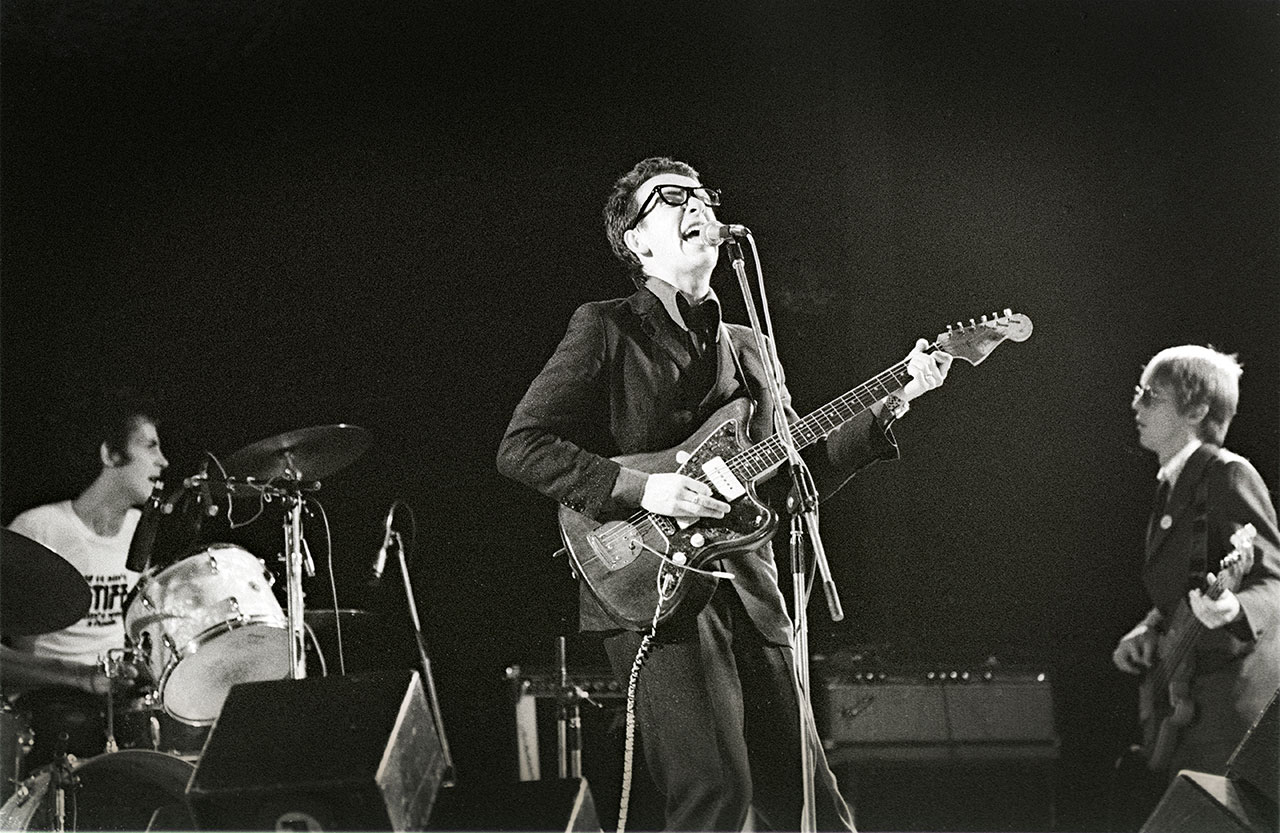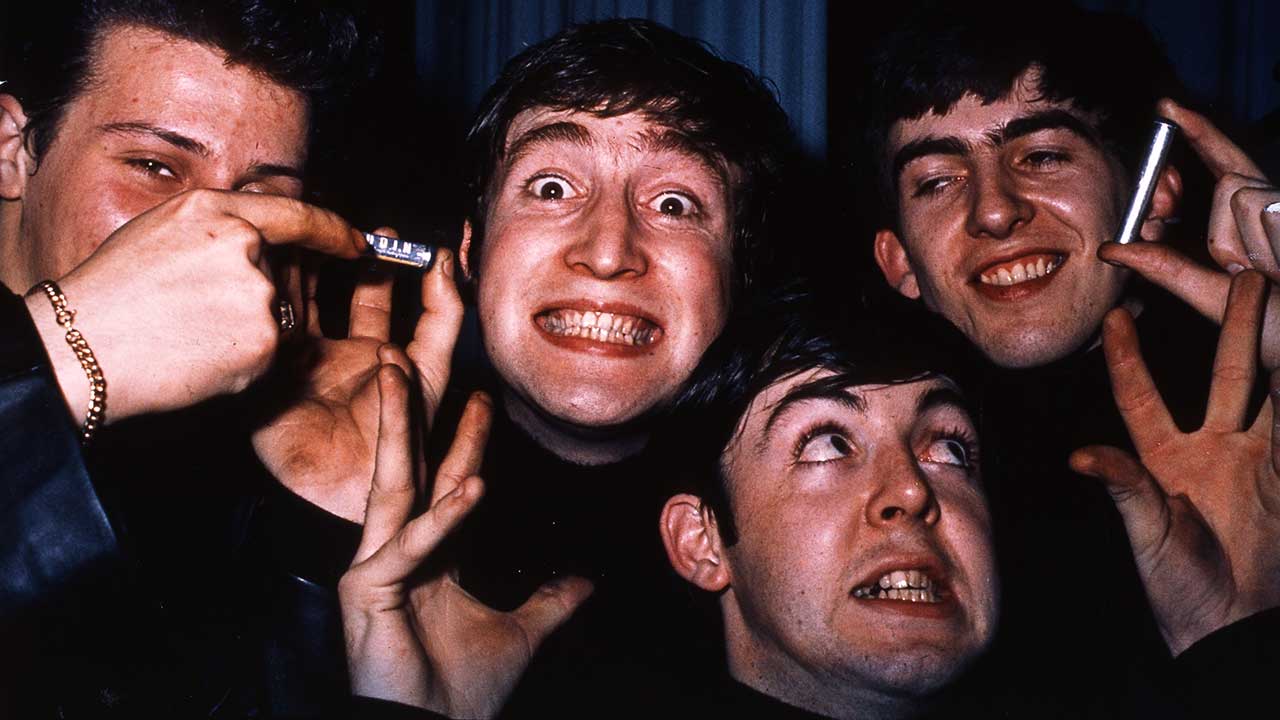The 10 best Elvis Costello songs, as chosen by David Ford
Multi-instrumentalist David Ford talks us through the Elvis Costello songs which mean the most to him

Select the newsletters you’d like to receive. Then, add your email to sign up.
You are now subscribed
Your newsletter sign-up was successful
Want to add more newsletters?

Every Friday
Louder
Louder’s weekly newsletter is jam-packed with the team’s personal highlights from the last seven days, including features, breaking news, reviews and tons of juicy exclusives from the world of alternative music.

Every Friday
Classic Rock
The Classic Rock newsletter is an essential read for the discerning rock fan. Every week we bring you the news, reviews and the very best features and interviews from our extensive archive. Written by rock fans for rock fans.

Every Friday
Metal Hammer
For the last four decades Metal Hammer has been the world’s greatest metal magazine. Created by metalheads for metalheads, ‘Hammer takes you behind the scenes, closer to the action, and nearer to the bands that you love the most.

Every Friday
Prog
The Prog newsletter brings you the very best of Prog Magazine and our website, every Friday. We'll deliver you the very latest news from the Prog universe, informative features and archive material from Prog’s impressive vault.
Elvis Costello is a genius. That’s not a word I toss around lightly. It’s a weighty term, a descriptive anvil I like to keep locked away with the good china for a very select few at the absolute top of their game, whatever that game might be. Isaac Newton, Leonardo da Vinci, Lionel Messi; the big guns.
Costello’s songwriting always seems to offer something extra. He can mix pop and rage without diminishing the effect of either element. Sometimes brutally direct, sometimes subtle, often intriguingly opaque. if you want to dive into his catalogue you can easily lose yourself in there and not be seen for years, or you can tap your foot and enjoy some infectious, audacious tunes. He’s got it all.
But no genius is without flaws. Newton believed in alchemy, Da Vinci’s helicopter was a death trap and Messi does not pick accountants wisely. As such, there are some places that Costello’s unshackled creativity takes him where I simply cannot follow, but when his incredible gift of lyric and melody is aimed at that spot where songs mash and mangle themselves into my own peculiar heartstrings, well, there are few who can stand beside him.
Impossible to tie down stylistically, Costello has this unique ability to glide across the invisible boundaries of genre maintaining his own distinctive sound, with unfailing authenticity and a fitting reverence for whatever hallowed musical ground might be beneath his feet.
Attempting to compile a definitive list of 10 Elvis Costello songs from such a long and eclectic career would be a foolish pursuit, so these are just my favourites. You may have your own and yours will be no less correct. Everybody wins.
Pump It Up (This Year's Model, 1978)
Costello borrows Bob Dylan’s lyrical flow from Subterranean Homesick Blues, but turns it into a glorious piece of sweaty pop with a yelled chorus, some cheeky sexual innuendo, a driving stomp rhythm and that iconic descending riff showcasing Steve Nieve’s trademark Vox organ sound. A brilliantly constructed record.
Veronica (Spike, 1989)
Written in collaboration with Paul McCartney, this is a perfect example of Costello’s ability to smuggle unconventional subject matter onto the territory of pop music. With the kind of melody and harmony you’d expect from an early Beatles hit, Costello tells the story of an elderly lady, in this case his own grandmother, whose mind is succumbing to Alzheimer’s disease. It’s all at once sad and celebratory, a beautifully genuine sentimental moment.
The latest news, features and interviews direct to your inbox, from the global home of alternative music.
I Want You (Blood & Chocolate, 1986)
I Want You opens with a short, sweet acoustic love song that quickly makes way for a scene of obsession and paranoia, the increasingly unhinged narrator bookending every jealous outburst with the unsettling assertion 'I want you'. The production is loose and left unpolished. The guitar solo consists of the two ugliest notes available in this musical key, hacked out with the tenderness of a lump hammer. It’s dark and disturbing and dirty and utterly compelling.
Oliver's Army (Armed Forces, 1979)
The biggest radio hit of Costello’s career is a triumphant pop song about British imperialism and its manifestation in Northern Ireland. While the music leans toward ABBA, the words deal with ongoing issues of class and colonialism in what was about to become Thatcher’s Britain. This is what’s so impressive about Costello the songwriter. He wasn’t writing these self-righteous political rants, performing them as self-indulgent epics then burying them as self-congratulatory B-sides and deep album cuts. The rage and purpose was up front and in your face and it was still a hit.
Man Out Of Time (Imperial Bedroom, 1982)
The Attractions were a hell of a band, and they needed to be in order to follow Costello’s musical diversions and shifts of gear. Having perfected the tight, bright, unmistakably British new-wave power-pop (if that’s what you want to call it) of his earlier albums and added a little soul flavour on Get Happy and ventured to Nashville to record the country record Almost Blue, here The Attractions kick it with all the muscle and majesty of The E Street Band. I love the chorus of Man Out Of Time. It just keeps rising, a constant upward shift in the music, like the chord progression is spiralling out of control and then just when it feels like the tune will jump the tracks and destroy the song it resolves perfectly back in the place where it began. Like magic.

Baby Plays Around (Spike, 1989)
The kind of timeless, classic, melancholic ballad that could have been discovered nestled within the tracks of Frank Sinatra’s Only The Lonely album. In addition to its perfect marriage of beautiful melody and achingly sad lyric, Baby Plays Around is a fine example of Elvis Costello the singer. The open, rich tone of his voice might come as a surprise to those familiar with the squeezed, punchy delivery of his early hits, but on this recording, Costello delivers a vocal performance with all the depth, frailty and humanity the song deserves.
When I Was Cruel No. 2 (When I Was Cruel, 2002)
Something of a sonic change-up, as this recording is built on a relentless sample loop that combines with a twangy tremolo guitar and Costello’s bone-dry, over-compressed vocal to create a track dripping with atmosphere. He spits a malevolent story set at a hellish wedding. It’s a dark and dreamy poem, but he includes enough reference to his own career to let you know that in this movie, the role of Elvis Costello is being played by himself.
Accidents Will Happen (Armed Forces, 1979)
The opening line 'Oh I just don’t know where to begin' is a great way to start a song, and this moment kicks off the Armed Forces album perfectly. The lyric then tells a fragmented story of an imperfect love affair besieged by infidelity, but as that opening line suggests, it’s not the straightforward tale of a wounded lover that plays out in so many songs about romantic disharmony. This is more of a true-to-life blur of conflicting feelings; guilt, innocence, shame, spite and resignation.
(What's So Funny 'Bout) Peace, Love And Understanding (Armed Forces, 1979)
I have sentimental reasons for including this as it was the song that first made me appreciate Costello, which is ironic since he didn’t write it. What struck me then and still excites me now is how he can sing Nick Lowe’s appeal for positivity while sounding so utterly pissed off.
Shipbuilding (Punch The Clock, 1983)
Costello’s lyric here is a piece of perfectly nuanced war poetry. As if a gentle answer to Edwin Starr’s rhetorical demand to know what war is good for, Costello offers the example of struggling British shipbuilding communities, whose fragile prosperity depends upon the creation of huge instruments of war. As a result, Shipbuilding goes further than other songs about conflict, by disregarding the familiar indignant hyperbole of the protest song and placing the story carefully among the everyday lives of those compelled to weigh the balance of gain and loss as a result of the fighting. The word 'war' is never mentioned. The listener is not told what to think, but tenderly reminded, as Elvis Costello so often reminds us, that it’s complicated.
David Ford's new album, Animal Spirits, is out on 11 May via AntiFragile Music. Listen to his new song Why Don't You Answer Your Telephone? below:
